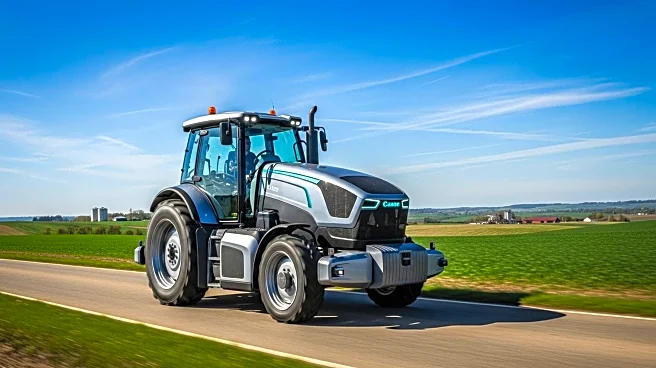What's Happening?
In Kansas, a new pilot program called the Rural Autonomous Mobility Program (RAMP) is testing the use of autonomous tractors on public rural roads. This initiative aims to address a significant logistical challenge in farming: the transportation of machinery between fields. The program, led by Kelly Hills Unmanned Systems in collaboration with Sabanto, the Kansas Department of Transportation, and other partners, seeks to develop policies and infrastructure to support the safe operation of autonomous tractors on public roads. At a recent demonstration in Seneca, Kansas, a Sabanto autonomous tractor showcased its capabilities by performing a seeding mission alongside drones. The pilot will run through 2026, with the goal of creating a scalable model for other regions.
Why It's Important?
The introduction of autonomous tractors on public roads could revolutionize farm logistics by reducing the time and labor required to move equipment between fields. This development is particularly significant for rural areas facing labor shortages, as it could lower dependency on human operators and reduce transport-related accidents. By enabling tractors to operate autonomously 24/7, the program could enhance productivity and efficiency in the agricultural sector. If successful, the model could be adopted in other U.S. states and internationally, potentially transforming farming practices on a global scale.
What's Next?
The pilot program will continue through 2026, during which time the involved parties will work on developing comprehensive safety and operational guidelines for autonomous tractors on public roads. The success of this initiative could lead to broader adoption and regulatory changes that facilitate the use of autonomous agricultural machinery across the United States and beyond. Stakeholders, including farmers, policymakers, and technology developers, will closely monitor the program's outcomes to assess its viability and potential for expansion.









